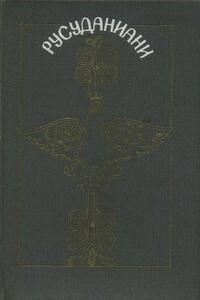Son of Holmes | страница 13
And so it was arranged that Auguste Lupa come to my house the next morning at ten for beer and a light lunch.
2
Espionage, like any other profession, has its ups and downs. Lately, though, it had taken a monotonous turn to the latter.
I’d been one of the few operatives who’d dared before August to suggest that the German thrust would be through Belgium. This was viewed as so outrageous that those of us who believed it were “transferred.” Even after the event came to pass, we were still regarded as second-class and relegated to desks or to the country. I should have been upset with the demotion, but in fact I’d been happy. I’d begun to feel constrained under the inflexibility of Joffre’s>1 yoke.
Consequently, I had spent the past autumn behind a desk, doing nothing worthwhile, and had finally, much to my relief, been called back to my hometown for this case. It was to be a break in my routine, a kind of forced vacation. No sooner had I returned to the little white house, nestled snugly amid grapevines and a small grove of oaks, however, than my contact had suddenly been taken dead—officially, an accidental drowning.
The next month I’d busied myself with the beer and light gardening, spending much time with my new chef, a young Swiss with extraordinary promise named Fritz Benet. It had been a pleasant enough time, or would have been without the specter of murder hanging over the house. Normally, living in an atmosphere where people tend to die unexpectedly didn’t overly disturb my peace of mind, but somehow, at home, I found it quite annoying.
There were, of course, my friends. Marcel Routier, my closest friend and fellow agent (though we rarely worked together) was now in Valence. My other friends, to whom we were traveling salesmen, included Henri Pulis, a Greek shop owner in town; Paul Anser, an American poet of some small repute; and Georges Lavoie, an Alsatian salesman who dealt in hospital supplies. Including Fritz, then, these were the other five men who knew about the beer.
There was also Tania. I had told Lupa that only five other men in town knew about the beer, and Tania—tall and slim, with long black hair and deep, deep eyes and voice—was as far from being a man as any creature on earth.
Marcel had been sent down after my original contact had “drowned” and had told me the problem. It was believed that the man behind most of the assassinations in the past two years—including Francis Ferdinand’s in Sarajevo—was now living and working out of Valence. How intelligence had come to believe that, I had no idea, since there wasn’t a shred of evidence that pointed to the involvement of a mastermind assassin. Yes, last spring an agent in Valence had been found with a bullet in his head two days after wiring that he was onto something big. But “something big” could mean just about anything these days, what with half the nations of Europe at war.

